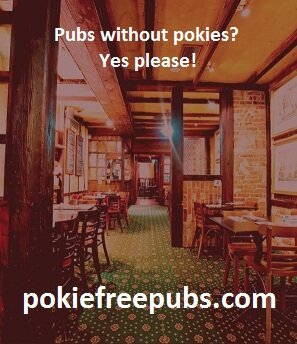There’s a widespread belief that Australians, on the whole, love to gamble. That we’re fond of a punt, we love a bet, we’ll stake a wager on two flies crawling up a wall. The theory is that gambling is entrenched in our society, in our hearts and souls… it’s something we all want to do. More than that, it’s part of who we are and it helps define us as a nation.
I usually come across this statement, in all its various forms, when I’m reading an article defending the gambling industry, or listening to someone trying to explain why reform isn’t wanted or needed. Any perceived attack on the gambling industry is portayed as an attack on the fabric of Australian society:
- no, we can’t reduce the number of pokies or raise taxes, because that would cause job losses and pub closures. Besides, Australians love to gamble.
- we’re right to introduce this new interactive betting service, because it provides more options and besides, Australians love to gamble.
- instigating measures to prevent problem gambling would be detrimental to the enjoyment of the majority of patrons who don’t have a problem, and besides, Australians love to gamble.
It’s like a broken record. But do Australians love to gamble? I’m willing to concede that we do. Gambling has been a part of Australian society for decades. The thing is that it’s only a part of the picture… and that picture is changing every day.
Australia, on the whole, enjoys gambling. Australia is also, historically, a very relaxed and casual society, based on mateship and the idea of a fair go. Naturally, therefore, gambling in Australia was for many years an informal pasttime. Anyone was willing to have a bet on anything.
In the past couple of decades, however, the landscape has changed… and it started with poker machines. The pokies, once found only in NSW, have spread across the country with the support and encouragement of governments, councils and corporations. Where once we had to seek out opportunities for a friendly wager, suddenly there were poker machine venues popping up in almost every suburb. They were advertised, they were glamorised, and we were hooked.
Then the internet exploded across our lives and before we knew it, there were online casinos only a few clicks away. We didn’t have to go out to gamble any more, we could look for a win from the comfort of our homes. These online gambling sites were unregulated and did as they pleased.
This has contributed to an explosion in gambling on poker, both online and in the real world. Trivia nights have been replaced by poker nights. Texas Hold’em is a household game. And how else would we have heard of Joe Hachem?
Lately, sports wagering has become gambling’s latest thrill. In the past couple of years company after company has started up, formed alliances with our major sporting organisations, invaded our televisions and our radios, all promising bigger and better payouts and products in order to win your business.
Now, there’s an old story about the chocolate packaging factory that allowed their employees to eat as much chocolate as they wanted to, while they worked. It never took long for an employee to get sick of chocolate and stop eating, which is exactly what the factory wanted.
Similarly, we are living in a gambling factory, for that is what Australia has become. We are being encouraged to use the facilities whenever we like (after all, Australians love to gamble). The problem is that many of us don’t get sick of it. Many of us just need more, and more, and more. And the factory continues to roll along, churning out billions of dollars of revenue and taxation every year; pokies alone made twelve billion dollars in the last financial year.
Ultimately it comes down to this. That “Australians love to gamble” can no longer be used as a justification for further expanding the gambling industry, in all its shapes and forms, into every corner of our lives. Instead, it is the primary reason that we need to exercise caution, put controls in place, and protect those who can’t handle the overwhelming urge to gamble above and beyond their means.


